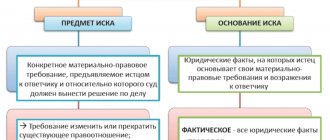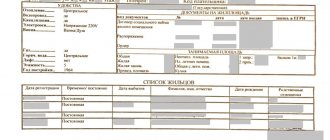Quite often, people come across the fact that people live in apartments or houses who do not have any legal basis for this. They may lose the right to reside, for example, if a social tenancy agreement, an agreement for official housing or a rental contract has expired. They can also use various fraudulent methods in order to live in such an apartment.
Dear readers! Our articles talk about typical ways to resolve legal issues, but each case is unique. If you want to find out how to solve your particular problem, please use the online consultant form on the right or call. It's fast and free!
Property owners can begin the process of eviction of such citizens, for which they can use different methods.
Important nuances
It is worth understanding that the resettlement of illegally residing persons can take a lot of time, money and effort.
It will be especially problematic with relatives or friends who asked for help and then began to abuse the owner’s kindness. In the case of relatives or registered citizens, it will be very difficult to write them out and it will take even more time. In cases of housing rental, you can protect yourself only by signing a lease agreement in which you indicate the beginning and end of the rental of the premises. There you also need to indicate all the persons who will reside and the basic rules. In any case, there is no point in delaying eviction, because time may not be in the owner’s favor, since we are talking about civil relations. The time limit is three years.
It is best to entrust such a task to experienced lawyers who can competently draw up a statement of claim and solve the problem in the shortest possible time.
Who is a cohabitant from the point of view of the law?
The so-called civil marriage, which has become widespread among the people, is not regulated in any way by law. In other words, according to the law, there is no relationship between a man and a woman living together other than a civil one. Accordingly, they do not fall under the Family Code of the Russian Federation.
For example, persons living together, but who have not registered their relationship with the civil registry office, cannot jointly own property as spouses. They have the right to register it as shared ownership (Article 252 of the Civil Code of the Russian Federation), but nothing more.
Living with a cohabitant in an apartment is only possible if the owners have nothing against it. If they decide that a resident needs to leave the premises, they must do so voluntarily and immediately. When this does not happen, the presence of a cohabitant in the living space is considered illegal.
We can say that the cohabitant is in the apartment or house “with bird rights.” In case of violation of the rules of residence, he may be brought to administrative or even criminal liability.
How to write a statement to the police?
When you write a statement to the police or your local police officer, you should not hope that he will help you kick such a person out of your apartment, since this is not within his competence.
Employees of this service will only be able to record an offense, negative social behavior and other misconduct of a citizen. To do this, you will need to submit a written request in the form of an application. The document must indicate your request for assistance in solving a problem with a citizen who is behaving antisocially and facilitating eviction. Even if the police cannot subdue such a person, they are obliged to issue a written conclusion, which you will then attach to your case and claim for the court.
How to evict a roommate
The issue of eviction of a cohabitant requires legal grounds. The procedure always begins with filing a claim in court. The following circumstances may be the reason:
- Desire of the owner or shared owners of the property.
- Property damage charges.
- Violating the rules of residence and causing inconvenience to neighbors.
The court also takes into consideration other grounds that are indicated in the statement of claim. Their essence should be clearly stated. The main emphasis is usually on the relationship between the homeowner and the cohabitant.
How to evict a registered roommate
Evicting a registered cohabitant from an apartment is associated with great difficulties. Deprivation of registration is also carried out through the court. When making a decision, the following are taken into account:
- How often does a cohabitant, whom the owner of the property plans to evict, appear in the specified residential premises?
- Does he participate in paying utility bills?
- In addition, difficulties when evicting a registered roommate will certainly arise if the following circumstances are confirmed:
- Documented participation in the financial provision of housing. For example, this could be regular payment of utilities or payment of contributions to repay a mortgage loan.
- The cohabitant has minor children. In such cases, the law allows registered people to live in the apartment of another owner until the children reach adulthood.
- Having serious illnesses that require constant care. In such cases, the court postpones making a decision until complete recovery.
Filing a claim
The application is submitted to the district court at the location of the home. The number of copies depends on the number of people involved. The application states (Article 131 of the Code of Civil Procedure):
- date and place of compilation;
- full name of the court site;
- apartment address;
- plaintiff's details;
- information about the responding party;
- base;
- essence of the question;
- the point why you believe that the defendant is living in the territory illegally;
- links to current legislation;
- demand to evict;
- applications;
- signatures.
In addition to the desire to get rid of uninvited tenants, the applicant has the right to demand compensation for losses incurred by him, for example, damaged finishing of the housing, as well as moral damage.
Cost and terms
State costs for going to court regarding eviction are considered non-pecuniary. The state duty is 300 rubles (Article 333.19 of the Tax Code of the Russian Federation). All expenses are borne by the plaintiff, even if he acts through a representative (lawyer). Payment is made before filing the claim documents - at the courthouse or at the bank cash desk.
The period for consideration of the claim is 5 working days . The hearings that follow may take 2 months + a month to appeal the court ruling. The specified periods are supplemented by the time for eviction of illegally residing citizens - 7 days from the date of entry into force of the court decision.
The statute of limitations for eviction cases is 3 years. However, there is an important caveat here: if the case is qualified under Art. 208 of the Civil Code of the Russian Federation, then the limitation period does not apply. Usually this is the owner’s demand to eliminate violations of his rights. Illegal entry into an apartment is one of these requirements.
Who is eligible?
You can sue the property owner:
- Representatives of municipal authorities.
- Representatives of government agencies.
The question may arise, what if it bothers the neighbors, can they solve this problem? Is it possible to evict an owner from a residential premises for violating the rights of neighbors ?
Everything is simple here, they need to contact government agencies. The most common option is a police station.
Read about whether you can be evicted from your only home here.
Reasons for the appearance of illegal residents
The first question that needs to be answered is where do the uninvited “guests” come from? Establishing this circumstance serves as the first step towards the eviction of an unauthorized tenant.
There are several reasons for the appearance of illegal residents in an apartment:
- expiration of the residential lease agreement;
- placement of minor children (without the consent of the owner of the living space);
- subletting an apartment to third parties;
- accommodation of relatives of previous tenants;
- reluctance of the ex-spouse to move out of the apartment after the divorce.
These and other reasons result in the appearance of unwanted guests in the apartment. It’s good if they understand the situation and vacate the living space on their own. But often residents simply refuse to move out of the apartment along with their belongings.
If there are children among the unwanted tenants, read about the procedure in the article “How to evict minors from a residential premises”?
Who falls into this category?
The legality of living in an apartment must be confirmed by official documents . The owner has priority rights to the living space (is it possible to evict the owner from the apartment?). Its legitimacy can be confirmed by a purchase and sale agreement, deed of gift, privatization forms, and inheritance documents.
Responsible tenants who have a social tenancy agreement also have legal grounds for residence, but cannot independently decide to move someone into the apartment. Residents registered in the premises can live there legally (we talked in detail about the grounds and conditions for eviction of citizens from municipal housing here, and from this article you will find out whether it is possible to evict a registered person from an apartment).
People who fall into one of the listed categories are considered illegal residents.:
- The former husband/wife, if he does not have his own share in the premises (how to evict former and current spouses or cohabitants from the apartment?).
- Tenants whose rental agreement has expired (read about how to evict tenants here, and from this article you will find out whether tenants can be deprived of their housing in the winter).
- Owners of housing who sold it but remained registered there.
- Citizens who were evicted by a court decision but did not leave their living space.
- Tenants living in specialized housing whose lease agreement has not been renewed.
You can learn more about who the former owners are and how to evict them from an apartment here.
The best solution to the problem is an agreement between the parties , but in practice it is not always possible to achieve understanding. It can be very difficult to expel an illegally living tenant. The owner will need both patience and time to find a legal way out of the conflict situation. There is no point in using force or intimidating such people. Illegal actions can easily turn the situation against the owner.
What legal measures can the owner take?
It is, of course, possible to warn an impudent guest in the spirit of “I’ll throw away the things and change the lock.” There is a high probability that the guest will hear and perceive it as a guide to action. But the homeowner has no right to carry out threats. Otherwise, this is fraught with administrative (Article 19.1 of the Code of Administrative Offences) or even criminal (Article 330 of the Criminal Code) liability.
Even the lack of registration as such is not considered a legal reason for eviction.
Only the following have the right to expel illegal persons:
- ships;
- police;
- bailiffs.
Thus, in case of unauthorized move-in, if the unauthorized tenants have nothing to do with your family, you can call the police. The employees will ask them to present documents: if it turns out that citizens do not have any rights to live in this territory, the law enforcement officers will simply remove them.
In all other cases you will have to go to court.
Eviction
If no one challenges the court decision within a month, it comes into force. The case goes into enforcement proceedings. The illegal occupant is once again warned of the need to leave the home in which he has no right to be. If this does not bring him to his senses, the procedure is carried out by bailiffs in the presence of attesting witnesses on the basis of a writ of execution (Federal Law No. 229-FZ, as amended in 2021).
The entire procedure takes up to three months. If new circumstances appear or the defendant deliberately delays the case, maybe more, sometimes even for a year.
Statement of claim for eviction of illegal residents (sample)
A well-drafted statement of claim is an excellent tool for winning a case in court.
Contents of the claim for eviction of unauthorized residents:
- name of the district court;
- Full name, address, telephone (email) of the apartment owner;
- Full name and similar information about the defendant (if they are not available, the court will conduct its own verification);
- the main essence of the claim;
- reasons to evict the defendant(s) from the apartment;
- evidence of the validity of the requirements put forward;
- appeal to the court - for example, to evict unauthorized persons and oblige them to compensate for material damage;
- application (list of documents);
- date and personal signature of the plaintiff.
Please note that the number of statements of claim must be at least 3 copies (depending on the number of defendants). The absence of copies is one of the grounds for refusing to accept the claim.
Thus, unauthorized occupied residential premises are subject to release. The owner has the right to resort to one of three ways to protect his rights: write a statement to the prosecutor's office, involve a local police officer, or go to court. The privilege to evict citizens belongs exclusively to the court, and in some cases to the prosecutor. You should not engage in arbitrariness, otherwise there is a high risk of ending up under criminal charges.









